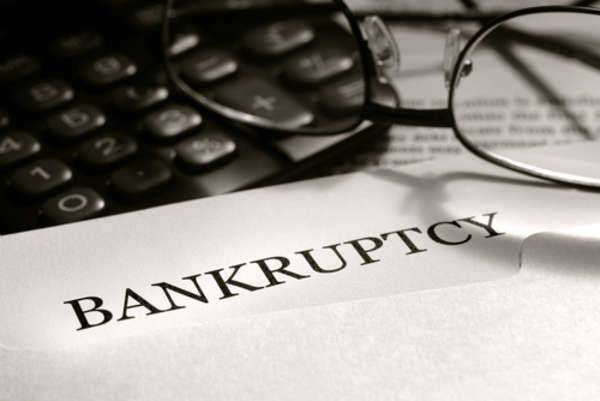Bankruptcy Fraud Attorneys Overview



Detecting bankruptcy fraud is no easy feat, because the entire point of such fraud is to make it appear as a regular bankruptcy case. Fraud cases often go completely undetected because they are indistinguishable from most bankruptcy cases.
The primary methods for detecting bankruptcy fraud cases have been case reviews and tips. The case reviews give a good overview of any given bankruptcy case, and can help examiners to determine if there are any strange elements to a specific case that might correlate to bankruptcy fraud law. But even so, generally it requires human judgment to make an assessment that any given case is fraudulent.
Such human judgment is obviously far from infallible, but no statistical analysis or computerized system would be able to pick up on the important inconsistencies, as all bankruptcy fraud cases involve slightly different procedures, and likely do not have enough statistical similarity to formulate a standard distribution curve, from which fraud cases would deviate.
Tips are vital to detect fraud cases, as well, because tips provide some of the most concrete information that could be available to fraud investigators. A tip could clue investigators in as to what elements of each fraud case should be focused on. As an example, a tip could inform investigators that a particular case is more a matter of multiple filings than it is a matter of concealed assets, and therefore allow investigators to better focus their energies.
Full reports given by informants can even provide all the necessary information for prosecuting bankruptcy fraud cases under fraud law, assuming that the reports themselves are accurate, and that the information contained within was obtained legally. The problem with tips as a method of investigating fraud cases is that informants are not always available to provide tips.
Often, there will be no one close to a given potentially fraudulent bankruptcy case who is willing or able to share any information of use to investigators. The success of tips in detecting bankruptcy fraud cases depends entirely on the willingness of informants to work with investigative bodies.
A relatively recent law attempts to use another means to detect bankruptcy fraud cases: debtor audits. The Bankruptcy Abuse Prevention and Consumer Protection Act is a law enacted in 2005, which has made several changes to the way that bankruptcy cases are handled in America. The most important change for detecting fraud cases was that 1 out of every 250 randomly collected chapter 7 and chapter 13 bankruptcy applicants were singled out to be audited in order to determine if their cases were satisfactorily standard.
The idea was that such random checks would bring cases which might otherwise never have been noticed into the eyes of investigators, who would then be able to determine whether or not those cases did actually fall under the purview of bankruptcy fraud law. There were also certain standard criteria for cases that would consistently be audited, regardless of the random determinations, simply because those cases were suitably suspicious.
Unfortunately, however, budget issues have arisen, and now the BAPCPA audits are only happening with 1 out of every 1000 applicants, thus casting a significantly smaller net. The potential for these audits to successfully find bankruptcy fraud cases overall, then, is drastically reduced.

Laws are in place to help prevent and punish bankruptcy.
For someone reporting fraud, the first step is to provide as much information as possible in a report to the Internal Revenue Service. Under bankruptcy laws, the IRS is responsible for performing bankruptcy fraud investigations, and submitting as much information as possible to the IRS will ensure that the proper authorities are being alerted, and that the IRS can then bring such information to the attention of other federal investigators. Reporting fraud to the IRS should involve as much detail about business dealings as possible, to ensure that the IRS actually has enough information to pursue an investigation.
Generally speaking, your state's revenue service is a good place to go, because they can not only use the help of individuals reporting fraud, but they can also give you information on the appropriate way to deal with such incidences. The state revenue service is particularly important if the bankruptcy fraud revolves around state issues, such as the misuse of state welfare and state resources while claiming bankruptcy. Bankruptcy laws are federal, but bankruptcy fraud can take this more state oriented form, and in such a case, reporting fraud to state authorities will likely be more effective in bringing about justice.
If you are reporting fraud about anyone close to you in any significant fashion, including friends, family, and business associates, then you will likely want to secure legal counsel, in addition to reporting fraud to the proper authorities. The worst possible result for an individual who is reporting fraud would be to get caught up in a lawsuit from those he or she was reporting about.
Seeking the aid of an appropriate lawyer will help protect you from any possible fallout of reporting fraud. Bankruptcy laws do not perfectly protect people reporting information, unfortunately. On a more personal level, as well, having a lawyer to act as intermediary might help to avoid trouble if the people you are reporting on are, indeed, close to you.
It will also be important, when reporting fraud, to ensure that you cannot be accused of deception yourself. Ensure that you have accurate records accessible when you are reporting fraud, and also ensure that you have no problems with informing a court about the methods you used to obtain those records and any other information you may have reported. If you did not obtain the information legitimately, then it is inadmissible, regardless of how relevant it might be; it is important to know this, so that you do not cause more trouble for yourself by reporting fraud than you could possibly fix.
One other important element of reporting fraud is that you might be interested in looking into whether or not your state's bankruptcy laws, or other laws, set up a bounty program for those who provide information. Because fraud in general is a major concern, and because it is so often difficult to detect, some states have implemented a rewards system for those who have any information to report on fraud.
Claiming the reward may make your attempts at reporting fraud seem more mercenary, but if you are taking a risk in reporting fraud, then there is no reason not to take advantage of a fully legal program designed to thank you for your help.